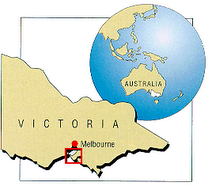
My good friend Alan Parker has some considerable experience in the world of Bicycle Advocacy in particuclar and Vulnerable Road User Advocacy in General.
He is getting on a bit these days, but still spritely as ever and watchful of the world. He let me know about this in some discussions recently over facts and issues about the status of bicycles in the world of big business and politics and the impact of Oil on future transport and public policy issues around responsible transport choices and alternatives..
here is what he has to say on Oil.
Times are changing fast. See comments below from a research data news agency and think of the consequences of high crude oil prices over $100 a barrel for increasing funding for bicycle transport. The attractiveness of building infrastructure for bicycles and electric bicycles in the not so distant future is going to greatly increase and we have to start pushing for this to be recognized before the Federal election. With high oil prices Bicycling becomes an important way of conserving oil and electric bicycles with batteries charged by small domestic solar cell arrays become an extremely attractive transport option. Note that china made 16.5 million electric bikes last year.
Bye Alan
2b/ ODAC (The Oil Depletion Analysis Centre-London) news Investec's Guinness sees oil price doubling (Reuters, Thu 19 Jul)
Comment: This really ought to be front page news, but I do not remember seeing this reported in anywhere (Reuters is a News Agency). As mentioned last week, it is ok for the IEA to forecast oil demand will outstrip supply over the next 5 years, and ok for the media to report this, but not ok to analyse what the consequences will be, yet.
Article: Citywire AA-rated Tim Guinness believes the oil price will hit $150 a barrel by 2010 and shock people into reducing their dependence on the resource.
Guinness, manager of the Investec Global Energy fund, made his comments after last week's report from the International Energy Agency warned the world would face a "supply crunch" in 2012 due to poor output from non-Opec countries clashing with strong demand within the cartel's oil producers.
The report led to a spike in oil prices to their highest level in nearly a year at $72.65 a barrel, around $2 below its highest ever level.
Guinness agrees with the IEA forecast and expects the oil price to rise steadily over the next five years as supplies dwindle.
AA-rated Ian Henderson, manager of the JPM Natural Resources fund, said the oil price could double in five years.
He also warned there could be an oil shortage before this date due to lack of investment in the industry.
"The issue is about money and access. Not enough money is being invested in the industry and so the access to the oil reserves is not as good as it should be," said Henderson.
Guinness thinks that once oil hits the $150 mark it will be enough to force people to change their attitude to the commodity.
He said: "To control the oil price demand growth must be negative, which will happen when oil hits $150 and it will stay there until demand for oil falls."
Once the effects of this have been felt, Guinness expects the oil price to fall back to $100, which he believes should be the level at which it stays for the long term.
He said: "If I was Opec I would manage oil at this price. Energy accounts for 15 percent of world GDP spending and oil at $100 is tolerable."
Guinness believes once oil stays consistently at the $100 level the economy will turn its focus to alternative energy supplies.
He said: "$100 is a level at which alternative energy sources work economically and on a large scale."
Bye Alan
2b/ ODAC (The Oil Depletion Analysis Centre-London) news Investec's Guinness sees oil price doubling (Reuters, Thu 19 Jul)
Comment: This really ought to be front page news, but I do not remember seeing this reported in anywhere (Reuters is a News Agency). As mentioned last week, it is ok for the IEA to forecast oil demand will outstrip supply over the next 5 years, and ok for the media to report this, but not ok to analyse what the consequences will be, yet.
Article: Citywire AA-rated Tim Guinness believes the oil price will hit $150 a barrel by 2010 and shock people into reducing their dependence on the resource.
Guinness, manager of the Investec Global Energy fund, made his comments after last week's report from the International Energy Agency warned the world would face a "supply crunch" in 2012 due to poor output from non-Opec countries clashing with strong demand within the cartel's oil producers.
The report led to a spike in oil prices to their highest level in nearly a year at $72.65 a barrel, around $2 below its highest ever level.
Guinness agrees with the IEA forecast and expects the oil price to rise steadily over the next five years as supplies dwindle.
AA-rated Ian Henderson, manager of the JPM Natural Resources fund, said the oil price could double in five years.

He also warned there could be an oil shortage before this date due to lack of investment in the industry.
"The issue is about money and access. Not enough money is being invested in the industry and so the access to the oil reserves is not as good as it should be," said Henderson.
Guinness thinks that once oil hits the $150 mark it will be enough to force people to change their attitude to the commodity.
He said: "To control the oil price demand growth must be negative, which will happen when oil hits $150 and it will stay there until demand for oil falls."
Once the effects of this have been felt, Guinness expects the oil price to fall back to $100, which he believes should be the level at which it stays for the long term.
He said: "If I was Opec I would manage oil at this price. Energy accounts for 15 percent of world GDP spending and oil at $100 is tolerable."
Guinness believes once oil stays consistently at the $100 level the economy will turn its focus to alternative energy supplies.
He said: "$100 is a level at which alternative energy sources work economically and on a large scale."









































